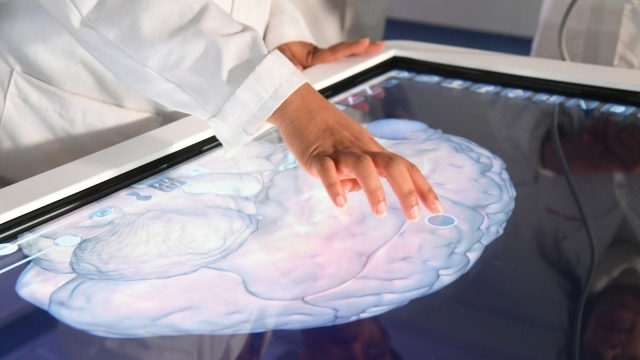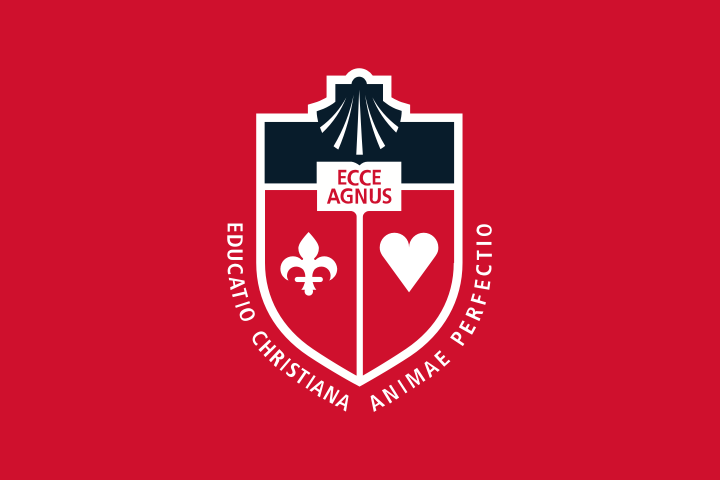

GR
Biological and Pharmaceutical Biotechnology, Master of Science
The program gives students a thorough understanding of the scientific theory and advanced laboratory research techniques vital to success in pharmaceutical and biotechnology industries. Students also receive valuable internship experience in this revolutionary field.
- Home
- Academics
- Majors and Programs of Study
- Biological and Pharmaceutical Biotechnology, Master of Science
Improving the Way We Live
From new medications to genetics, the pharmaceutical and biotechnology industries harness biological processes to meet our society’s commercial and health-related needs.
- Prepare for an exciting career in a vital, fast-growing field.
- Gain the scientific and laboratory skills to conduct research that can improve lives.
- Develop the administrative skills to advance in the biotech industry.
- Degree Type
- MS
- Area of Interest
- Science & Mathematics
- Associated Colleges or Schools
- Program Location
- Queens Campus
- Required Credit Hours
- 33
Admission
Students complete a 33 credit, interdisciplinary program with courses offered by the Department of Biological Sciences, Chemistry, Pharmaceutical Sciences, and Pharmacy Administration and Public Health—18 credits are within a pharmaceutical biotechnology “core” which includes a three-credit biotechnology internship at an approved site and 15 credits in elective courses. Students must maintain a program cumulative grade point average of at least 3.0. Most courses are typically held in the evening.
Application Requirements
Applicants must submit the following items with their admission application:
- Official transcripts documenting a minimum cumulative GPA of 3.0 on a 4.0 scale and a B.S. or B.A. or equivalent in a life sciences or physical sciences major
- Applicants with transcripts from non-US accredited institutions require a World Education Services (WES) evaluation
- A minimum of two letters of reference
- International applicants who have not received a degree from an US-accredited institution are required to present evidence of proficiency in English such as the TOEFL/ IELTS/ DuoLingo test
Program Requirements
The curriculum provides a strong conceptual foundation upon which students can build the practical skills to excel in this exciting and rapidly evolving field. Students must complete a minimum of 33 credits, 18 of which are satisfied by the completion of the required core courses, which includes an off-campus internship. To be eligible for the BIT 900 Internship in Biotechnology, the student must have completed at least 21 credits, preferably 30 credits, with a minimum cumulative GPA of 3.0.
Fellowships
There are no fellowships or graduate assistantships available for this degree program. The scholarship committee may award $2000, $3500, $5000, or $6500 per year for up to two years to excellent applicants when funding is available. In addition, applicants may contact the Associate Dean for Graduate Education and Research for information regarding available opportunities.
Academic Standing
All graduate students must maintain a cumulative GPA of 3.0 to continue in the graduate program. A GPA below 3.0 at the end of a semester results in terminal academic probation. In addition, any course letter grade below a B places the student on terminal academic probation. During terminal academic probation, for the next 12 credits of registered course work, excluding special problems and research credits, any grade below B results in a recommendation for academic dismissal. Placement on terminal academic probation also initiates a PHS Dept. review of the student’s academic performance. If academic standing is remediated, the student is no longer on terminal academic probation; however, an additional grade below B will result in terminal academic probation for the remainder of the degree.
If two grades are below B and/or the GPA is below 3.0 in any given semester, the student will be on terminal academic probation for the remainder of their degree. Three grades below B result in immediate recommendation for academic dismissal regardless of academic standing. The student may withdraw from the program prior to academic dismissal..
Transfer of Credit
A student may request transfer up to six (6) graduate credits that have not been applied to another degree from another US-accredited institution of higher learning to substitute for courses in the curriculum. The student must submit a course syllabus for which he or she is requesting transfer credit and an official transcript from the College or University at which the course was taken, to the Director of the Biotechnology Program. The syllabus will be evaluated by the Graduate Education and Policy Committee. If it is deemed to be equivalent, the student will receive transfer credit for the course.
Admission Contact
Courses
Core Courses
(All students are required to take the following six courses)
| Course Code | Course Title | Credits |
|---|---|---|
BIT (BIO) 207 | Biomolecules and Cell Structure | 3 |
BIT (BIO) 248 | Laboratory Techniques and Applications I | 3 |
BIT (BIO) 249 | Communication Skills in the Life Sciences | 3 |
BIT (PAS) 252 | Biostatistics | 3 |
BIT (PHS) 270 | Introduction to Biotechnology | 3 |
BIT 900 | Internship in Biotechnology | 3 |
Core Courses Descriptions
BIT (BIO) 207 Biochemistry - Structure and function of biomolecules; enzymes; introduction to the organization and chemical economy of the cell; an overview of metabolism. Credit: 3 semester hours.
BIT (BIO) 208 Molecular Biology - Structure and function of DNA; protein synthesis and the genetic code; mechanisms of genetic transfer; recombinant DNA; viruses; chromosomes; gene expression and its regulation. Credit: 3 semester hours
BIT (BIO) 248 Laboratory Techniques and Applications I - Project-based hands-on experience with a variety of modern cellular, biochemical, and molecular techniques. Credit: 3 semester hours.
BIT (BIO)249 Communication Skills in the Sciences - An introduction to life science communication and the practical applications of oral and written formats of communication. Credit: 3 semester hours
BIT (PAS) 252 Biostatistics - This course will allow the student to conceptualize the different statistical methods used to evaluate drugs and health care protocols used in clinical and non-clinical public health settings. While the principal emphasis will be placed on data analyses involving animal and humans in preclinical and clinical studies, case studies will involve the application of the concepts learned in the course to other health related fields including but not limited to public health. Credit: 3 semester hours
BIT (PHS) 270 Introduction to Biotechnology - This course discusses the basic mechanisms underlying the expression of information encoded in the DNA, i.e., transcription, translation and replication. Credit: 3 semester hours
BIT 900 Internship in Biotechnology - Completion of a minimum of 21 credits with a GPA of 3.0 and approval of the Program Director. Students are required to perform a semester long full-time internship at a biotechnology/ pharmaceutical company. A required written report is submitted to the on-site mentor for evaluation and an oral presentation is given at the company. The student then submits the written report to the Program Director and gives the oral presentation at the university at an appointed time. Credit: 3 semester hours.
Elective Courses
(Students must take five elective courses equivalent to 15 credits)
Please refer to the Graduate Bulletin for a comprehensive list of elective offerings for the program or contact the program director.
Career Outcomes
Pharmaceutical biotechnology draws upon such disciplines as microbiology, biochemistry, molecular and cellular biology, and pharmaceutical sciences. According to TEConomy Partners, LLC, in 2022 the biopharmaceutical sector directly supported 71,598 jobs and was responsible for a total of 287,270 jobs (direct and indirect) in New York State. The industry generated an economic output of $103.0 billion in total value of goods and services. The average worker compensation in direct biopharmaceutical jobs in New York was $138,111 annually, significantly higher than the state average.
New York State continues to strategically invest in biosciences. In October 2024, the Governor unveiled plans for the New York BioGenesis Park, a $430 million Cell and Gene Therapy (CGT) Innovation Hub in Nassau County, Long Island, with a historic $150 million state investment aimed at accelerating the delivery of new therapies. New York's bioscience-related Research & Development (R&D) expenditure totaled $5.5 billion in FY 2022, placing it among the top states nationally. These investments and the sustained growth highlight New York's commitment to fostering a dynamic life science ecosystem that drives economic growth, attracts talent, and revolutionizes patient care.
Companies and agencies that specialize in pharmaceutical biotechnology seek skilled professionals to meet the industry’s scientific and administrative demands. Career opportunities abound in clinical labs, information technology, large pharmaceuticals, research labs and even small start-ups. You can prepare for these careers through the Master of Science Degree Program in Biological and Pharmaceutical Biotechnology at St. John’s University.
References:
"Biopharmaceutical Sector Impact on New York's Economy." TEConomy Partners, LLC for PhRMA. February 2024. https://cdn.aglty.io/phrma/fact-sheets/economic-impact/New%20York_Eco%20Impact%20One%20Pager%202022_2.pdf (Accessed September 10, 2025)
New York BioGenesis Park - https://www.governor.ny.gov/news/governor-hochul-launches-next-phase-long-islands-nation-leading-cell-and-gene-therapy (Accessed September 10, 2025)
Empire State Development. "2023 Life Science Initiative Annual Report" (mentions CGTx hubs and other investments). https://www.esd.ny.gov/sites/default/files/2023-Life-Science-Initiative-Annual-Report.pdf (Accessed September 10, 2025)
NewYorkBIO. "NEW YORK LIFE SCIENCES COMMUNITY CELEBRATES STATE'S GROWING LEADERSHIP AS HUB FOR INNOVATION." January 27, 2025. https://www.newyorkbio.org/news/new-york-life-sciences-community-celebrates-states-growing-leadership-hub-innovation (Accessed September 10, 2025)
Program Director
Featured Faculty






- Associate Professor

Interested in Science & Mathematics, but not sure if Biological and Pharmaceutical Biotechnology, Master of Science is right for you?
Related Programs
UG
The Bachelor of Science in Biochemistry provides you with a comprehensive curriculum that prepares you for graduate school or a career in health, or the biotechnology, pharmaceutical, or cosmetic industries.
- Queens Campus
UG
The Department of Biological Sciences is committed to the preparation of students for the exciting, rapid, and unpredictable changes in the field of biology that will continue to emerge over the next century.
- Queens Campus
UG
Biologists study living organisms and their relationship to the environment.
- Queens Campus
Dual
The Department of Biological Sciences offers an intensive, accelerated combined degree program leading to both the B.S. and M.S. degrees in five years of full-time study.
- Queens Campus
GR
The Ph.D. program in Biology at St. John’s delivers comprehensive knowledge of the biological sciences, with an emphasis on cell and molecular biology.
- Queens Campus
GR
The Master of Science (M.S.) program in Biology at St. John’s delivers comprehensive knowledge of biological sciences, with an emphasis on cell and molecular biology.
- Queens Campus
UG
St. John’s University admits selected academically talented high school seniors as biology majors and, simultaneously, to candidacy for admission to the professional Doctor of Optometry (O.D.) program at SUNY College of Optometry. Admission to this accelerated program may allow you to graduate with both B.S. and O.D. degrees in only seven years, rather than the usual eight.
- Queens Campus
UG
Podiatry is a profession dedicated to the complete care of the feet. Most Doctors of Podiatry, or podiatrists, treat many types of foot problems, but some specialize in foot surgery or other treatments for congenital defects, diseases and injuries of the bones and joints of the foot. A podiatrist can also specialize in podopediatrics (foot ailments of children) or in podogeriatrics (foot ailments of the elderly). Like other health professionals, podiatrists are responsible for referring patients to other practitioners (usually physicians) when foot problems are symptoms of other health disorders, such as diabetes and heart disease.
- Queens Campus
UG
The Bachelor of Science degree in Biomedical Sciences provides an interdisciplinary academic program of study that fosters competencies in areas related to biomedical sciences, health sciences, as well as core competencies in the liberal arts and sciences and prepares students for health professions and graduate programs.
- Queens Campus
UG
As a Chemistry major, you will graduate with a wide array of career possibilities in the chemical, environmental, health, and pharmaceutical industries.
- Queens Campus
UG
The Department of Chemistry offers an intensive, accelerated, combined degree program leading to both the Bachelor of Science (B.S.) and the Master of Science (M.S.) degrees in five years of full time study.
- Queens Campus
GR
The widely-respected Master of Science (M.S.) program in Chemistry at St. John’s will prepare you for a career in industry, education, government laboratories, or private research, or to pursue a doctoral degree in the field.
- Queens Campus
GR
The M.S. in Computational Biology and Biostatistics at St. John’s University answers a growing demand for data analysts, data curators, database developers, statisticians, mathematical modelers, bioinformaticians, and software developers with training in both computer science and biology.
- Queens Campus
UG
Explore minors for undergraduate students in Environmental Studies or Environmental Education from St. John's University.
- Queens Campus
GR
Sustainability is a growing field in both the public and private sectors. The Master of Arts in Environmental Sustainability and Decision Making at St. John’s will prepare you for opportunities in a rapidly evolving global community that spans the sciences, social sciences, and humanities.
- Queens Campus
UG
The interdisciplinary Bachelor of Arts (B.A.) in Environmental Sustainability and Decision-Making integrates coursework from across the sciences, humanities, and social sciences, among others to prepare you for opportunities in a rapidly evolving global community.
- Queens Campus
UG
Provides you with interdisciplinary knowledge and hands-on experience in criminal investigation, evidence analysis, and legal procedures to prepare for careers in forensic science, law enforcement, and related fields.
- Queens Campus
GR
Neuroscience is the branch of the sciences that studies the relationship between the anatomy, physiology, biochemistry, and molecular biology of nerves, nervous tissue, and diseases. Through the Master of Science (M.S.) in Neuroscience at St. John’s , you can prepare for a career in this growing interdisciplinary field.
- Queens Campus
UG
The Bachelor of Science (B.S.) in Physical Science at St. John's University is an interdisciplinary major that can provide training of physics, chemistry, biology, mathematics and engineering. It is a desirable path for pre-engineering, pre-medical and other health or engineering related professions. Physical science is often taken as a double major along with a
major in Biology.
- Queens Campus
UG
The combined Bachelor of Science (B.S.) and Master of Business Administration (M.B.A.) in Physics and Business Administration offers highly-motivated students the opportunity to complete both undergraduate and graduate degrees in five years of full-time study.
- Queens Campus
UG
The Department of Physics at St. John's University offers three Bachelor of Science (B.S.) degrees in Physics, Mathematical Physics, and Physical Science, as well as a minor in Physics.
- Queens Campus
UG
Physics is a very fundamental subject in all sciences. It is truly a “Theory of Everything”. It encompasses the various theoretical and applied studies from the origin of the universe to the formation of tiny particles that make up everything around us, to different interactions that govern our physical world, etc.
- Queens Campus
Take the Next Step

Explore Affordability
The Office of Student Financial Services is committed to providing students and their families with the information they need to navigate and understand the financial aid and payment process.
Apply to St. John's
St. John’s offers a free online application for all 100+ undergraduate programs, and graduate applications carry a low cost for most programs.
